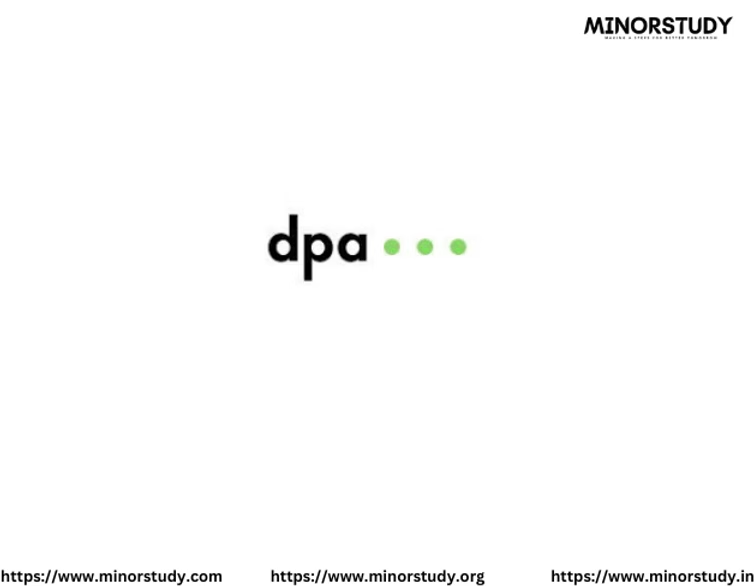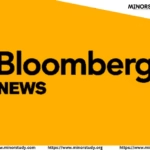6 Powerful Revelations That Show dpa’s Impact Is Immensely Positive ✨
dpa: When you read news in Germany—or see global headlines—chances are much of it first passed through the Deutsche Presse-Agentur (dpa). Despite being less-known outside German-speaking circles, this agency is a journalistic powerhouse with a profound legacy. Here’s a human-friendly, comprehensive exploration (1,200+ words) covering dpa’s history, facts, FAQs, timeline, significance, societal impact, observance, wishing message, and why it truly matters in our daily lives.
- 1. A Humble Origin That Gave Birth to German Media Independence (1949)
- 2. A Journey of Growth: Facts, Figures & Milestones
- 3. FAQs: What Everyone Wants to Know
- 4. Why dpa Matters: Significance at Home & Abroad
- 5. dpa in Our Daily Lives: Invisible Yet Essential
- 🗞️ Ubiquitous in German Media
- 🎙️ Supporting Broadcasters
- 📚 Educational Value
- 🛡️ Combating Misinformation
- 6. Observance, Wishing, and Celebrating Impact
- Important Points at a Glance
- Conclusion: dpa’s Quiet Power in the Modern World
1. A Humble Origin That Gave Birth to German Media Independence (1949)
Founded on August 18, 1949, in post-war Goslar, dpa emerged as a cooperative formed by Deutsche Nachrichtenagentur (Dena), Deutsche Pressedienst, and Süddeutsche Nachrichtenagentur (Südena) de.wikipedia.org+10en.wikipedia.org+10de.wikipedia.org+10. It was established with one clear purpose: to free German journalism from political control, especially in the shadow of Nazi propaganda. By September 1, dpa sent its first news bulletin to German media outlets .
Initially structured as a cooperative, dpa became a limited-liability company in 1951, further cementing its editorial independence en.wikipedia.org. Today, it’s owned by over 170 German publishers, each capped at only 1.5% ownership—an ingenious design to protect against ideological sway jobwork.com+3dpa.com+3ifcncodeofprinciples.poynter.org+3.
2. A Journey of Growth: Facts, Figures & Milestones
🚀 Key Figures
716 employees in 2023, with coverage in 83+ global locations and 12 regional services in Germany en.wikipedia.org.
Revenue reached €104.3 million in 2023, with net income of €1.36 million en.wikipedia.org.
Outputs around 1,100 articles daily in German, plus thousands of photos; foreign-language content is available in English, Spanish, and Arabic dw.com+3en.wikipedia.org+3jobwork.com+3.
🗓️ Timeline Highlights
1956–1967: Rapid international expansion; began longwave and shortwave services, launched Arabic and expanded English & Spanish coverage de.wikipedia.org+2dpa.com+2leibniz-hbi.de+2.
1973–1979: Technological shift—introduction of ERNA computerized editing and colour image transmission dpa.com.
1986–1990: Creation of Global Media Services (GMS), purchase of photo agencies, and complete independence in foreign reporting de.wikipedia.org+2dpa.com+2en.wikipedia.org+2.
1990–2004: Expanded into East Germany post-reunification; digital transformation began with services like dpa-Select, dpa-MedienServer, and online image libraries dpa.com+6dpa.com+6dpa.com+6.
2007–2020: Innovations like children’s news service, relocation of Berlin editorial HQ, and video content acquired from TeleNewsNetwork dpa.com.
2023: Celebrated 70th and 75th anniversaries, earning praise as a cornerstone of democracy dpa.com+1geschaeftsbericht.dpa.com+1.
3. FAQs: What Everyone Wants to Know
Q: What is dpa?
It’s Germany’s largest and most trusted press agency, supplying news to nearly every national broadcaster, newspaper, website, and radio station dpa.com+15en.wikipedia.org+15dw.com+15.
Q: Who owns dpa?
dpa is owned collectively by German media publishers, with a legal cap placed on individual shares to ensure editorial independence en.wikipedia.org+7dpa.com+7jobwork.com+7.
Q: What languages does dpa support?
Primarily German, with robust services in English, Spanish, and Arabic, produced via offices in Berlin, Madrid, Sydney, and Cairo en.wikipedia.org.
Q: How does dpa maintain neutrality?
By committing to being non-partisan and verifying every story—prioritizing accuracy even over speed en.wikipedia.org.
Q: Does dpa fight misinformation?
Yes, with a fact-checking team of ~30 specialists, publishing over 5,000 checks in three languages, and certified by the IFCN ifcncodeofprinciples.poynter.org+3dpa.com+3ifcncodeofprinciples.poynter.org+3.
4. Why dpa Matters: Significance at Home & Abroad
🏛️ Guardian of Democracy
After WWII, dpa played a central role in rebuilding German trust in free, unbiased journalism. It championed editorial freedom—refusing state ownership—and became a model for responsible reporting dpa.com+8leibniz-hbi.de+8nonstopsystems.com+8.
🌐 Global Reach
With bureaus on every continent, dpa supplies German and global media with grassroots and global news—impacting information from Berlin to Buenos Aires .
🖥️ Technological Innovator
dpa’s early adoption of computerized news editing (ERNA) and digitized multimedia distribution set industry standards for decades dpa.com.
💡 Standard-Setter
It’s a founding member of the European Alliance of News Agencies, IPTC, and FIEJ. As part of the International Press Institute, it has shaped global journalism ethics, data formats, and press freedom standards nonstopsystems.com.
5. dpa in Our Daily Lives: Invisible Yet Essential
🗞️ Ubiquitous in German Media
Whether you read a regional paper in Bavaria or watch RTL in Berlin, chances are dpa content—text, images, or audio—has shaped your news experience en.wikipedia.org+4dw.com+4leibniz-hbi.de+4.
🎙️ Supporting Broadcasters
It powers newsrooms, podcasts, live tickers, and special features, freeing local news outlets from needing their own round-the-clock reporters .
📚 Educational Value
Journalism schools in Germany often train students using dpa materials and explore its legacy in media ethics and factual reporting geschaeftsbericht.dpa.com+14leibniz-hbi.de+14jobwork.com+14.
🛡️ Combating Misinformation
Its fact-checking unit tackles disinformation about Ukraine, health, migration, and social media rumors—helping to protect public discourse .
6. Observance, Wishing, and Celebrating Impact
dpa doesn’t declare public holidays, but its anniversaries—like 70th and 75th—are celebrated across media institutions . Those milestones often spark discussions on press freedom, technology, and democratic responsibility.
🎉 Wishing Message:
“Here’s to dpa—may you continue lighting the way for factual journalism, championing democracy, and innovating news delivery. Happy anniversary, and thank you for being the backbone of reliable information!”
Important Points at a Glance
Founded in 1949 to protect German journalistic independence.
Cooperative-to-GmbH structure, avoiding undue influence.
Global network: 83+ locations, multilingual services.
Industry pioneer: early digitization, multimedia distribution.
Fact-checking leadership: 5,000+ checks, IFCN certified.
Fundamental to German media: Every newspaper and broadcaster relies on it.
Conclusion: dpa’s Quiet Power in the Modern World
In an age of sensationalism and misinformation, dpa stands out as a beacon of reliability. It’s not flashy—it doesn’t trumpet itself. But it touches millions of lives through every German media outlet, safeguarding democracy with every verified report.
Its cooperative roots, editorial ethos, and global reach make it a model for responsible journalism. In today’s volatile media landscape, such institutions are more vital than ever.
Final Reflection 🕊️
dpa may operate in the background, but its impact is front and center in how Germans—and increasingly global audiences—understand the world. Trust, accuracy, and integrity—these are dpa’s gifts to society.








